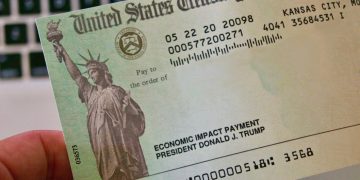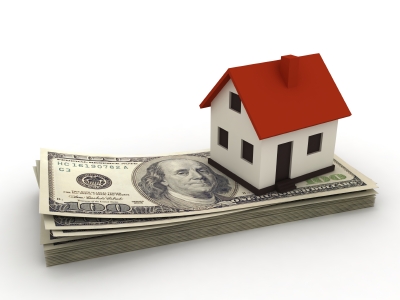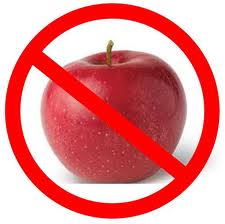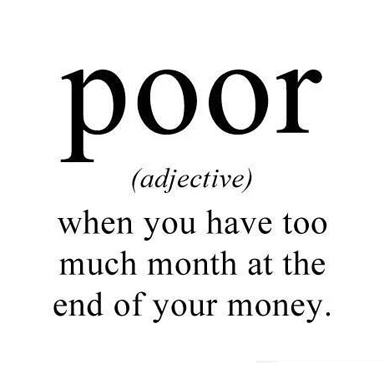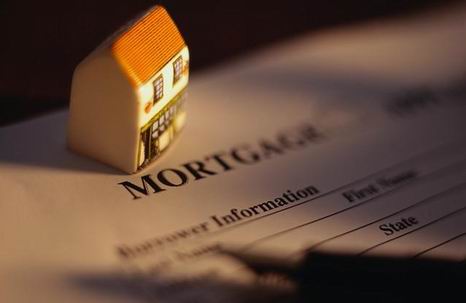When buying a home most of us do not take our time in researching and determining the best options for a mortgage. For the majority of us, our home is the most important and expensive purchase we will ever make! Right now my student loans far surpass that, but that’s beside the point. We invest quite a bit of time and effort in finding the perfect property in the best neighborhood, but when it comes to finding the best deal for a mortgage, we usually take whatever is offered rather than research and secure the best mortgage for our particular situation.
Consider this: the average homeowner will pay more in interest over the life of their mortgage than the house originally cost (you can use a mortgage calculator to see that for yourself). You can see why you getting the best deal for a mortgage now could potentially save you tens of thousands of dollars in interest over the 20 to 30 years that it will typically take to pay off your mortgage.
Simple research for the best mortgages or loans and payment options available today can be done via the internet, making the process time efficient and convenient for you.
What’s Good For Your Neighbor Might Not Work For You
Mortgages come in many different forms. You should be aware of each type of mortgage in order to determine which one best fits your particular financial situation. Basically, mortgages can fall into one of the following categories listed below. Lenders have variations of these basic categories, but with this information, you should be able to choose the mortgage that is best for your family.
- Fixed-rate mortgages
The loan’s interest is maintained at a specific rate for the duration of the mortgage / loan. About 75% of all originated mortgages fall into this category. A fixed rate mortgage is often considered the best deal for a mortgage loan for first time buyers. Since the payment amount does not change from one month to the next, it is very easy to make and stay within budget with this type of mortgage. - ARM or adjustable rate mortgages and variable rate mortgages
This is a mortgage or loan with an interest rate that adjusts with any changes in the rate paid by Treasury bonds or bank certificates of deposit. In Canada, rates vary according to the bank recorded rates. To offset the risk associated with a variable rate mortgage, some lenders offer different “ceiling” option. They often fix or limit the maximum interest rate that you are subject to, and how many times the rate may increase in a given period. Adjustable rate mortgages or variable mortgages can be very attractive for some buyers because the rates are usually much lower than fixed rate mortgages. They are an excellent vehicle for borrowers who are sensitive to fluctuations in interest rates and ready to “lock” their mortgages when interest rates start to rise. If you are constantly watching the currency markets, this may be the best choice for a home loan for you. - Balloon Mortgage
This is a mortgage where the monthly fee is not intended to pay the entire loan. The final payment is a lump sum of outstanding principal. This mortgage is particularly popular with home buyers in the U.S. who do not want to stay in their new home for more than 5 or 7 years. The advantage is that the interest rate is lower than the fixed rate mortgage, however, the downside is that if you stay at home for longer than 5-7 years time, you should get a new loan or a mortgage to pay the balloon mortgage. - Jumbo mortgage loans or ‘Non-Conforming’ mortgage
In the United States, Congress has legislated a limit consistent with the amount of the mortgage is eligible for funding by the Federal National Mortgage Association (aka Fannie Mae) and Federal Home Loan Mortgage Corporation (also known as Freddie Mac). The limit for 2010 was $417,000 and $625,500 in Alaska, Guam, Hawaii and the U.S. Virgin Islands. Any loan or mortgage above this boundary line is considered a jumbo mortgage. A jumbo mortgage or loan allows you to get over the boundary line, but for this privilege, interest rates are usually much higher than a fixed rate mortgage below the boundary line. There are variations of the mortgage name such as Jumbo, Super Jumbo and Non-Conforming. Canadians have an equivalent called “high-ratio mortgage” which guaranteed and funded by the Canada Mortgage and Housing Corporation (CMHC).The limits for jumbo loans all depend on where you live and are published by Fannie Mae & Freddie Mac, the Federal Housing Administration (FHA), and the Department of Veterans Affairs (VA)
Repayment Options
Now that you’ve identified what type of mortgage may suit you best, you should consider your methods of payment. You typically have two options:
- Principal and interest: Your monthly repayments are divided into interest and principal or return of capital. In the early years of the loan most of the monthly payment is swallowed up in interest, but over time the life of the loan more of the capital is repaid. You can check how much you are paying in principal versus interest with a mortgage calculator.
- Interest Only: Method of payment of interest only. This payment option can be added to either a fixed rate or adjustable rate loan.This repayment method is often used by individuals with irregular income cycles or those paid on commission. So, if your normal payment would be $1,000 which includes $500 in interest and $500 in principal, you would pay only the $500 in interest until such time as you could make a larger payment that would cover more than the interest. This can be a dangerous method of repayment since you make essentially no payments to principal over a period of time. I have known friends in banking who receive large bonuses at the end of the year. They would make interest only payments for a set period during the year and then use the year-end bonus as the principal payment.
So Many Lenders … So many choices!
There are many lenders offering a variety of loan options that it may at first seem like a daunting task to try to determine what is appropriate for you. It is important to note that when shopping for a mortgage loan, every bank performs a credit check before committing to the loan. Each credit check remains on your credit report and could potentially reduce your credit score and qualifying for a mortgage . While it’s a good idea to shop around, try doing so at the same time to mitigate the minor hit that your credit score might take.


